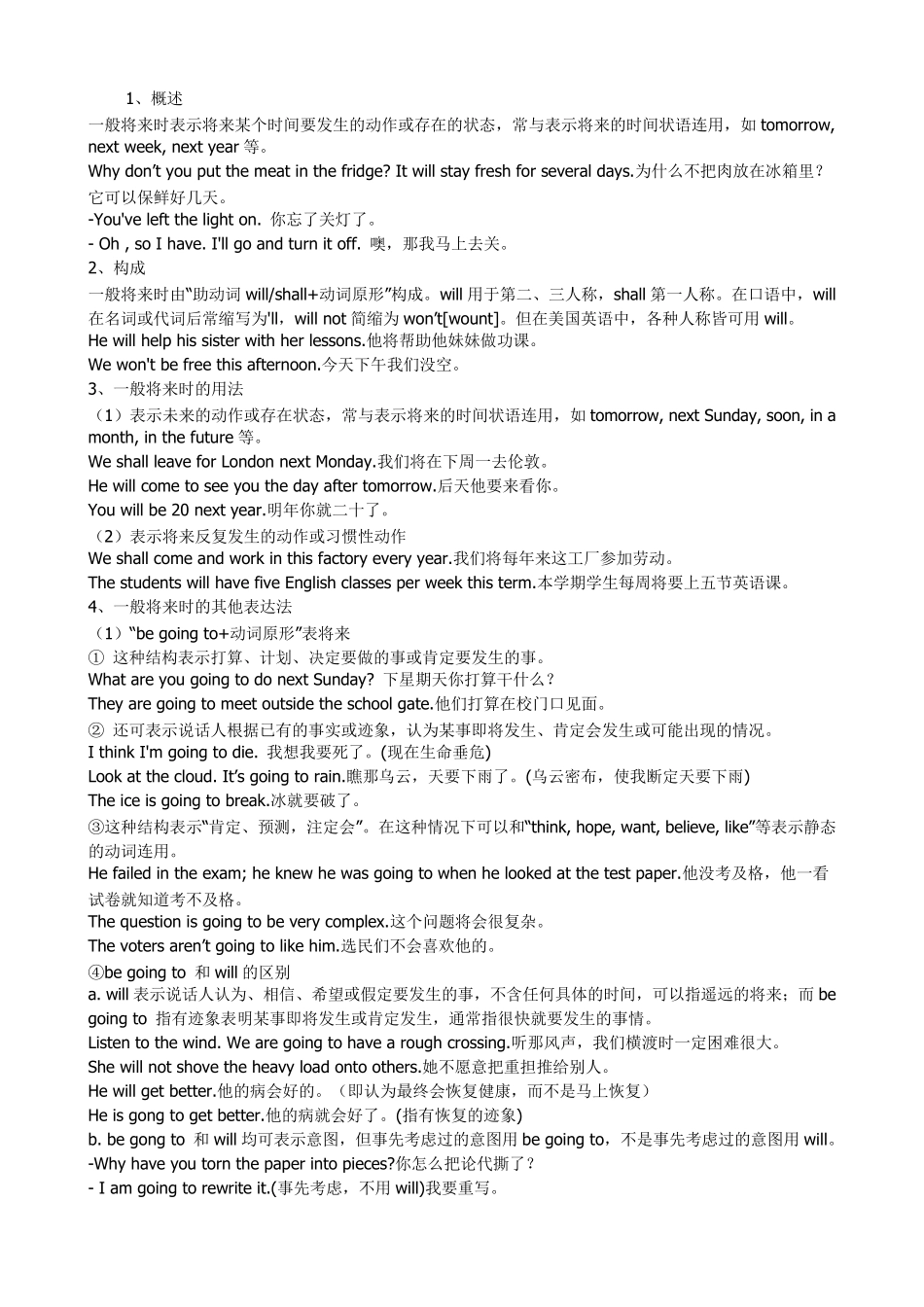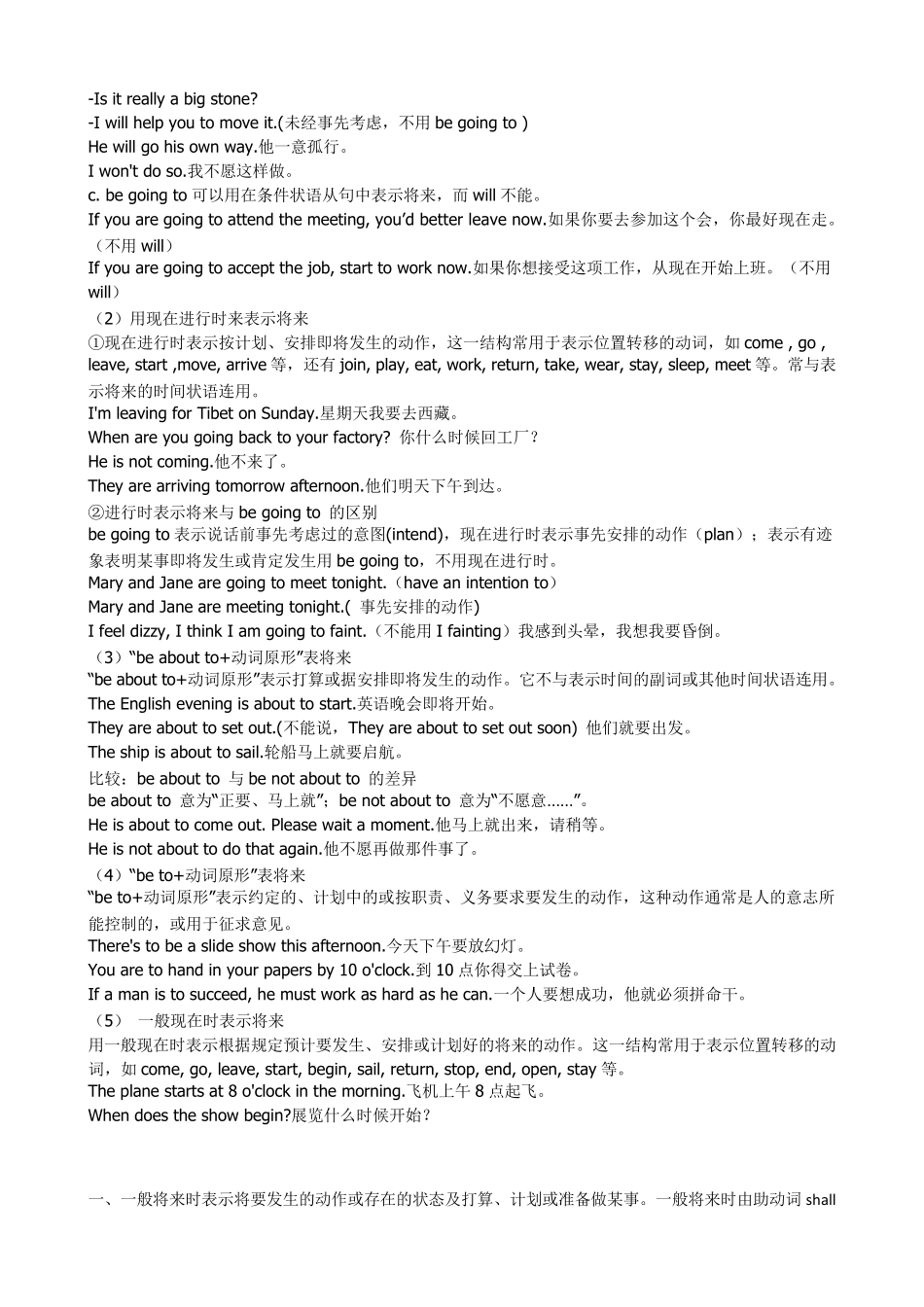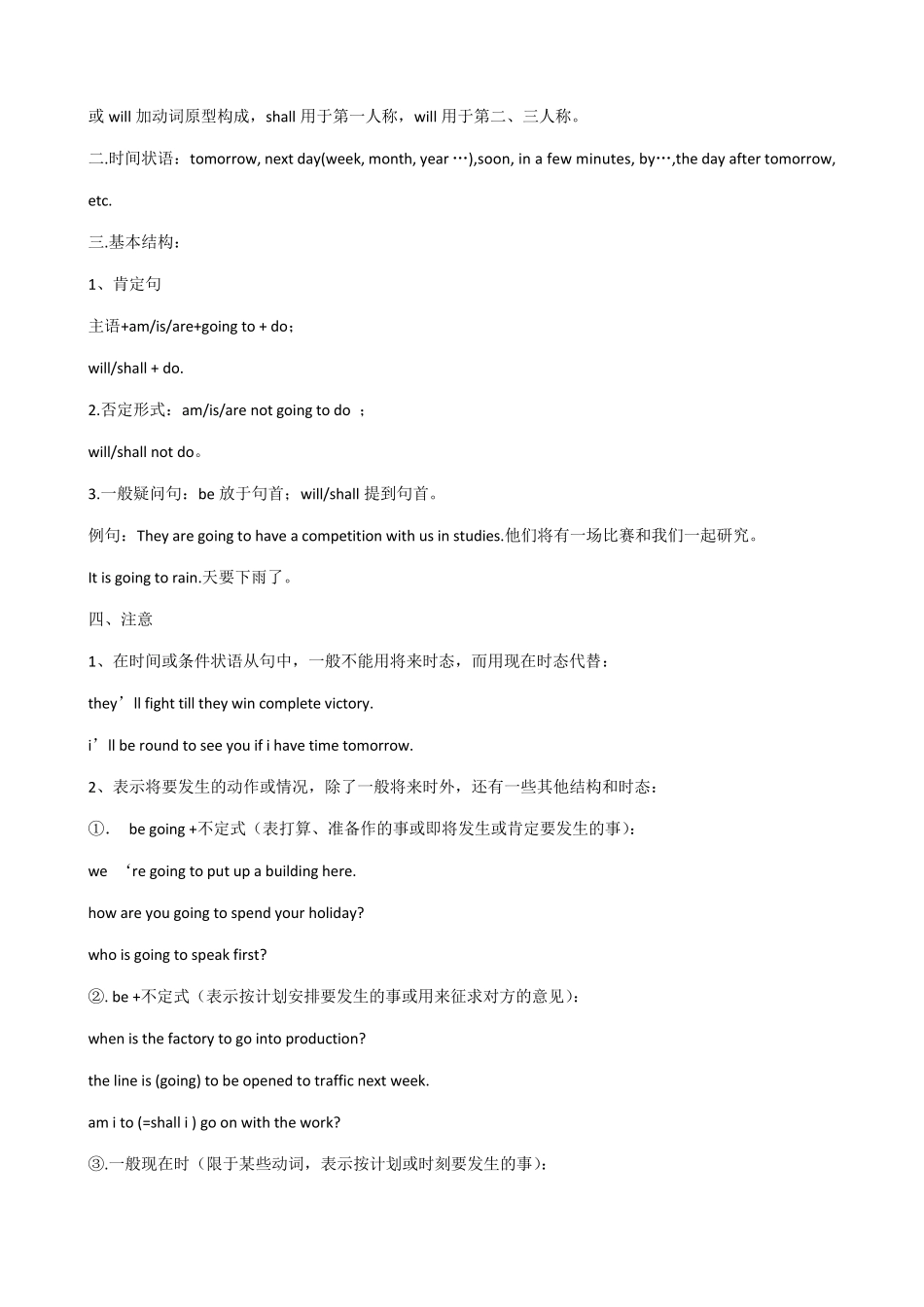1、概述 一般将来时表示将来某个时间要发生的动作或存在的状态,常与表示将来的时间状语连用,如 tomorrow, next week, next year 等。 Why don’t you put the meat in the fridge? It will stay fresh for several days.为什么不把肉放在冰箱里?它可以保鲜好几天。 -You've left the light on. 你忘了关灯了。 - Oh , so I have. I'll go and turn it off. 噢,那我马上去关。 2、构成 一般将来时由“助动词 will/shall+动词原形”构成。will 用于第二、三人称,shall 第一人称。在口语中,will在名词或代词后常缩写为'll,will not 简缩为 won’t[wount]。但在美国英语中,各种人称皆可用 will。 He will help his sister with her lessons.他将帮助他妹妹做功课。 We won't be free this afternoon.今天下午我们没空。 3、一般将来时的用法 (1)表示未来的动作或存在状态,常与表示将来的时间状语连用,如 tomorrow, next Sunday, soon, in a month, in the future 等。 We shall leave for London next Monday.我们将在下周一去伦敦。 He will come to see you the day after tomorrow.后天他要来看你。 You will be 20 next year.明年你就二十了。 (2)表示将来反复发生的动作或习惯性动作 We shall come and work in this factory every year.我们将每年来这工厂参加劳动。 The students will have five English classes per week this term.本学期学生每周将要上五节英语课。 4、一般将来时的其他表达法 (1)“be going to+动词原形”表将来 ① 这种结构表示打算、计划、决定要做的事或肯定要发生的事。 What are you going to do next Sunday? 下星期天你打算干什么? They are going to meet outside the school gate.他们打算在校门口见面。 ② 还可表示说话人根据已有的事实或迹象,认为某事即将发生、肯定会发生或可能出现的情况。 I think I'm going to die. 我想我要死了。(现在生命垂危) Look at the cloud. It’s going to rain.瞧那乌云,天要下雨了。(乌云密布,使我断定天要下雨) The ice is going to break.冰就要破了。 ③这种结构表示“肯定、预测,注定会”。在这种情况下可以和“think, hope, want, believe, like”等表示静态的...


